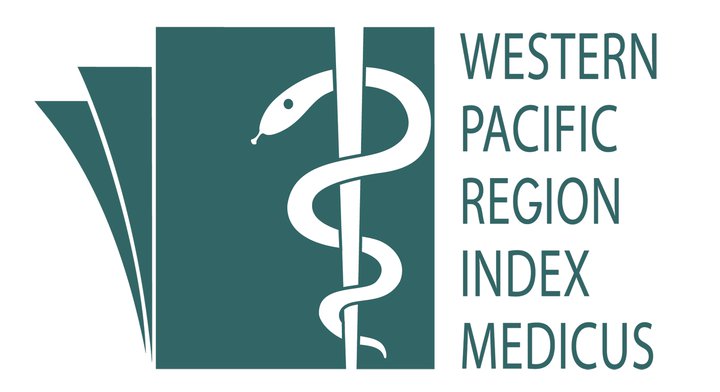Risk Taking Sexual Behaviors among Antiretroviral Therapy Patients in Lafia, Nigeria; A Cross Sectional Survey
Keywords:
People Living with HIV - Condom use - sexual partner.Abstract
Introduction
The HIV Prevalence in Nasarawa State, Nigeria is 7.5% which is above the national average of 4.1%. HIV prevention efforts have however not sufficiently targeted HIV-positive individuals partly due to inadequate data on their risk taking behaviours. The objective of the study was to determine sexual behaviours of Persons living with HIV (PLHIV) receiving antiretroviral therapy at the Dalhatu Araf Specialist Hospital, Lafia, Nigeria.
Methods
The study was a cross-sectional survey among PLHIV receiving antiretroviral therapy. Structured questionnaire was administered to randomly selected 320 Patients on antiretroviral therapy at Dalhatu Araf Specialist Hospital, Lafia, Nigeria. Data was collected on sociodemographic characteristics and sexual behaviours such as use of condom and sex with non spousal partners.
Results
About eighty seven percent (87.2%) of men and 34.4% of women were sexually active. Almost two third of the male participants (65.5%) and 6.7% of female participants reported having sex with a non regular partner in the previous six months. Participants who were males (P<0.001), younger age (P<0.001), who had primary education or lower (P<0.001), who did not disclose their HIV status (P<0.001) and who were unmarried (P<0.001) were more likely to engage in sex with non-regular partners. Among the sexually active participants, 60.7% of females and 17.5% of males had unprotected sex at last sexual intercourse with their regular sexual partners.
Conclusions
Sexual risk taking behaviours are high among persons receiving antiretroviral therapy in Lafia, Nigeria. Age, gender, level of education and disclosure of HIV positive status are associated with risk taking behaviours of PLHIV. People living with HIV need to be targeted for prevention interventions including peer education and interpersonal communication.
Â
References
Federal Ministry of Health, Department of Public Health, National AIDS/STI Control Programme. Technical report 2008: National HIV/Syphilis sero-prevalence sentinel survey among pregnant women attending antenatal clinics in Nigeria. Abuja; 2008.
Federal Ministry of Health [Nigeria]. National HIV/AIDS and Reproductive Health Survey, 2012 (NARHS Plus). Federal Ministry of Health Abuja, Nigeria, 2013.
Department of Public Health, National AIDS/STDs Control Programme. Technical report of 2003 National HIV Sero-prevalence Sentinel Survey. Federal Ministry of Health, Abuja, Nigeria. April, 2004.
Department of Public Health, National AIDS/STDs Control Programme. Technical report of 2005 National HIV Sero-prevalence Sentinel Survey. Federal Ministry of Health, Abuja, Nigeria. April, 2006.
Department of Public Health, National AIDS/STDs Control Programme. Technical report of 2007 National HIV Sero-prevalence Sentinel Survey. Federal Ministry of Health, Abuja, Nigeria. April, 2008.
Nasarawa State Ministry of Health. Information on Health Facilities in Nasarawa state. Nasarawa State Ministry of Health, Lafia. 2009.
NASACA. NNRIMS Bulletin, Fourth Quarter Oct - Dec2009.
Nasarawa State AIDS Control Agency (NASACA). HIV Modes of Transmission in Nasarawa State. An Analysis of Distribution of new infections and Recommendations for Prevention. Lafia, 2010.
Taruberekera N, Mishra V, Gonese E, Mugurungi O. Risk-Taking Behaviors of HIV-Positive Adults in Zimbabwe: Opportunities for Prevention with the Positives. Zimbabwe Working Papers. Number 3. Zimbabwe, February 2010.
Paganella MP, Motta LR, Kato SK, Sperhacke RD, Pilcher CD, Bacon OM, Hecht FM, Souza RS. Persistent HIV transmission Risk Behaviors among HIV-Serodiscordant Couples in South Brazil. AIDS 2010; International AIDS Conference, July 18-23, 2010. Vienna, Austria.
Wakabi T, Kironde B, Ouma J, Nkolo C, Were E, Sempiira E, Lwanga S K. Knowledge of anti retroviral therapy and sexual behavior among people with HIV/AIDS in Eastern Uganda. AIDS 2010; International AIDS Conference, July 18-23, 2010. Vienna, Austria.
Marshall B, Kerr T, Zhang R, Montaner J, Wood E. No Evidence of Increased Sexual Risk Behaviour after Initiating Antiretroviral Therapy (ART) among People who Inject Drugs. AIDS 2010; International AIDS Conference, July 18-23, 2010. Vienna, Austria.
Kana MA. HIV/AIDS Epidemiology, Response and Policy Synthesis, Nasarawa State Report, Nasarawa State AIDS Control Agency, August 2009.
Obi SN, Onah HE, Ifebunandu NA, Onyebuchi AK. Sexual practices of HIV-positive individuals: The need for continued intervention in developing countries. J Obstet Gynaecol. 2009 May; 29(4):329-32.
Dahiru T, Aliyu A and Kene TS. Statistics in Medical Research: Misuse of Sampling and Sample Size Determination. Annals of African Medicine, Vol 5, No. 3; 2006: 158 - 161.
Joshua O. Akinyemi, Olutosin A. Awolude, Isaac F. Adewole, Phyllis J. Kanki. Condom use among antiretroviral therapy patients in Ibadan, Nigeria. J Infect Dev Ctries 2010; 4(8):495-502.
Osinde MO, Kaye DK, Kakaire O. Sexual behaviour and HIV sero-discordance among HIV patients receiving HAART in rural Uganda. J Obstet Gynaecol. 2011 Jul; 31(5):436-40.
Amoran O, Ladi-Akinyemi T. Sexual Risk History and Condom Use among People Living with HIV/AIDS in Ogun State, Nigeria. J Sex Med. 2012 Jan 3.
Velasco-Hernandez JX, Gershengorn HB, Blower SM. Could widespread use of combination antiretroviral therapy eradicate HIV epidemics? Lancet Infect Dis. 2002; 2: 487 – 493.
Downloads
Additional Files
Published
How to Cite
Issue
Section
License
IJPHR applies the Creative Commons Attribution (CC BY) license to articles and other works we publish. If you submit your paper for publication by IJPHR, you agree to have the CC BY license applied to your work. Under this Open Access license, you as the author agree that anyone can reuse your article in whole or part for any purpose, for free, even for commercial purposes. Anyone may copy, distribute, or reuse the content as long as the author and original source are properly cited. This facilitates freedom in re-use and also ensures that IJPHR content can be mined without barriers for the needs of research.






